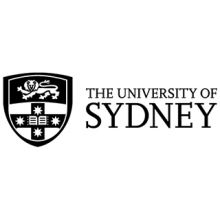The coronavirus crisis afflicting Australia is “not the worst-case scenario” for its China-dependent universities, according to UNSW Sydney vice-chancellor Ian Jacobs.
Professor Jacobs said Australia’s decision to stop foreign nationals entering the country from China had stranded about two-thirds of UNSW’s Chinese students – some 10,000 people – back at home. But things could be worse.
“This is likely to [last] for a fixed time until it is safe to remove the travel restrictions, and we will plan accordingly,” he said. “There are a variety of ways any sensible organisation would deal with this sort of issue.
“In some ways it’s good to be tested, not that we would have asked for this.”
UNSW has decided against boosting its online education capability to run remote courses for the absent students. Instead, those who are not on campus and ready to start classes on 28 February will be expected to defer their courses until term 2.
Professor Jacobs said the best thing UNSW could do for the affected students was to give them “clarity” about their options. His university had an “almost unique opportunity” to defer students without disadvantaging them because of its trimester-based academic calendar.
“[It] means that instead of having just two entry points to our programme, we have three,” he said. “We have a timetable that was deliberately designed to allow flexibility. [For] those who can’t arrive on 28 February it’s not a big problem because they can enrol for term 2, which commences on 1 June. They will be able to cover the courses they’ve missed and graduate on time as planned.”
Australian universities have adopted a variety of approaches to the crisis. The University of Sydney told its staff that feedback from China suggested most students want to learn off-campus while the travel ban lingered.
Under plans circulated late last week, information technology students in China will learn remotely for at least the first five weeks. Commerce and accounting courses will be delayed for a fortnight, with classes delivered remotely for at least another three weeks. Project management will be taught online for a whole semester. Legal courses will be delivered online, with some subjects taught intensively in the middle of the year.
Monash University has delayed the start of its semester by at least one week and will conduct all of the following week’s classes online. Its orientation activities have been postponed, along with about 850 exams. The Australian National University will offer remote study for hundreds of courses as part of a suite of arrangements including flexible commencement, withdrawal and deferral, academic skills co-curricular options and a buddy system for students off campus.
Vice-chancellor Brian Schmidt said ANU had been “proactive” in making sure students in China felt part of the university community. He said the university was endeavouring to minimise disruption to the academic year while looking after people’s wellbeing.
Professor Jacobs said that while the crisis would impact universities financially, that was “secondary” to looking after the students. He said UNSW’s “future fund” had been established for just this sort of situation, “to give us enough time to put in place a long-term plan if we need it”.
“We’re not naive in the way we run our universities,” he insisted. “We realise that having a large cohort of international students exposes us to certain risks.”
Professor Jacobs said the crisis had highlighted the need to revisit Australia’s university funding model. “It’s dangerous for the nation to rely too heavily on the other sources of funds that universities can mobilise – philanthropy, industry or international students – and not to have sufficient public funding to be able to deliver everything that the country expects of its universities.”
Register to continue
Why register?
- Registration is free and only takes a moment
- Once registered, you can read 3 articles a month
- Sign up for our newsletter
Subscribe
Or subscribe for unlimited access to:
- Unlimited access to news, views, insights & reviews
- Digital editions
- Digital access to THE’s university and college rankings analysis
Already registered or a current subscriber? Login












